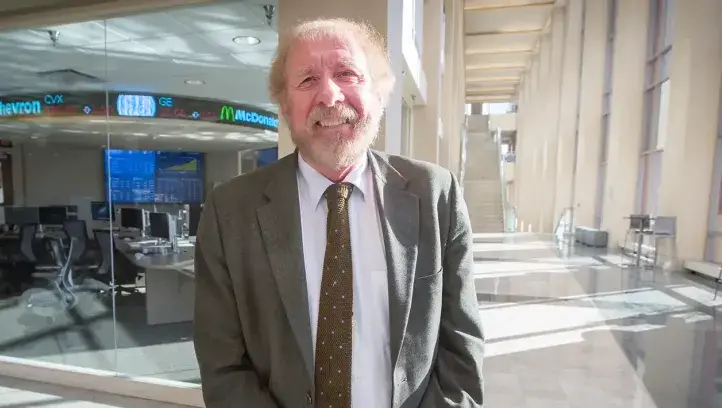
Hoffman receives $330K VA grant to address health disparities in rural communities

Growing up in rural Nebraska has informed Rashelle Hoffman’s, PhD, PT, DPT, research career. The assistant professor in Creighton University’s Department of Physical Therapy has focused her research on understanding neural mechanisms that underlie cognitive and motor performance in those contending with neurological injury or disease. Of particular interest are unique barriers for veterans living in rural communities that impact medical well-being and increased risk of chronic conditions, especially in aging populations.
Though much of her research has pertained to older adults, this October Hoffman will begin a two-year study geared toward veterans with mild cognitive impairment and their care partners, thanks to a Rural Health Career Development Award from the Department of Veterans Affair’s Office of Rural Health. The grant seeks to provide mentorship, financial support and education to researchers focusing on the healthcare issues rural veterans face.
The grant, titled “Remotely Improving Physical Activity in Rural Veterans with Cognitive Impairment and Care Partner Dyads,” just exceeds $300,000.
Hoffman will conduct community-engaged research and mixed-method analyses, with the goal of co-producing a physical activity program for rural-dwelling veterans with mild cognitive impairment (MCI) and their care partners. She will test the program’s feasibility, eventually extending its application to all veterans across the country, not just those living in rural communities.
To date, there is a dearth of evidence-based rehabilitation strategies to improve physical activity in rural-dwelling veterans with MCI. This lack of evidenced-based programming also extends to care partners’ integral role and health. The award will fund the development and implementation of “a low cost, virtually administered risk-reduction intervention in VA clinical care to maximize impact for rural veterans with MCI,” Hoffman says.
M. Bryant Howren, PhD, MPH, of Iowa City’s VA, and Eric Vidoni, PhD, PT, of the University of Kansas Alzheimer’s Disease Research Center, are her primary mentors and co-researchers with this award. The team aims to recruit 40 veteran dyads (veterans and their care partners), working with five VA primary care providers with major VA clinics and Community-Based Outpatient Clinics across Nebraska, Kansas and Iowa. Creighton undergraduate and graduate students will be an integral part of the research team.
During her upbringing in rural Nebraska, Hoffman witnessed firsthand how several of her family members suffered from complex medical issues that local clinics or hospitals were not equipped to address. The result often was poorer quality of life and faster disease progression, she says. Thus began her interest in health disparity research between rural and urban settings.
Research has revealed that “rural adults engage in different physical activity and eating patterns, live in a structurally different environment and face unique challenges, including access to exercise facilities and healthy food, access and utilization of healthcare services, lower social support and higher rates of chronic disease, than their urban counterparts,” Hoffman says.
“Collectively, these rural attributes contribute to a two-fold higher risk of Alzheimer’s Disease and Related Dementias (ADRD) mortality over a seven-year period compared to urban areas,” she continues. Though existing educational programs have made headway in reducing the risk, “gaps remain, suggesting that additional interventions, like a physical activity program, would benefit highly rural and aging veterans.”
During her clinical experiences in PT school, geriatric rotations and postdoctoral fellowships, Hoffman witnessed how lack of physical exercise, good nutrition and regular medical assessments compounded health problems stemming from the presence of comorbidities, such diabetes and heart disease or obesity and high blood pressure.
Pathologies, such as cognitive impairment, and other non-health-related barriers, such as lack of resources that rural dwellers often face, are challenges Hoffman’s study will start to address.
“The power of physical activity has the ability to dramatically shift our health landscape,” Hoffman asserts.




